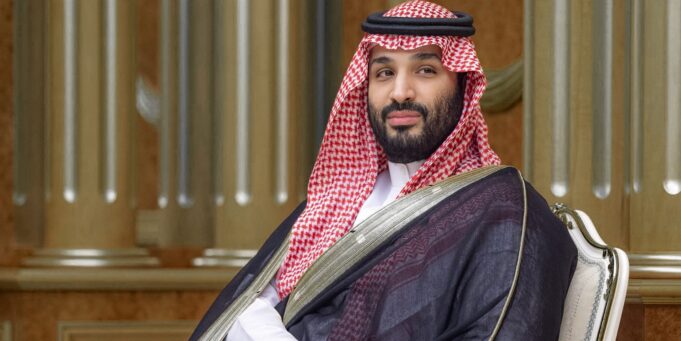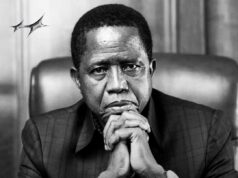Mohammed bin Salman (born August 31, 1985) is the de facto ruler of Saudi Arabia, known for his aggressive foreign policy, ambitious economic vision, and controversial social reforms. He formally serves as crown prince (2017– ) and prime minister (2022– ) and has previously served as minister of defense (2015–22). He is the son of Saudi King Salman bin Abdulaziz and his third wife Fahdah bint Falāḥ ibn Sulṭān.
Early life
From a young age Mohammed was interested in government, shadowing his father and remaining conscious about his image. Along the way he learned how to communicate with a wide variety of dignitaries and to avoid indiscretions. He attended King Saud University in Riyadh, Saudi Arabia, where he graduated with a bachelor’s degree in law in 2007. He afterward founded a number of firms and a nonprofit organization intended to promote entrepreneurship in the kingdom. In 2009 he became a formal adviser to his father, who was then governor of Riyadh. As Salman rose in rank and influence, eventually becoming crown prince in 2012, his trusted son Mohammed rose with him.
In January 2015 Saudi Arabia’s King Abdullah died and Salman became king. He immediately appointed Mohammed as his defense minister. In a matter of months Mohammed launched an aggressive military intervention in Yemen’s civil war. Known as Operation Decisive Storm, the campaign intended to give the government of Yemeni Pres. Abd Rabbuh Mansur Hadi a decisive advantage against the Shiʿi Houthi insurgency in the north of the country. It was thought that a Houthi victory might give Iran, Saudi Arabia’s main regional rival, a foothold along Saudi Arabia’s southern border. The campaign, however, failed to turn the tide in the war and led to little more than a prolonged stalemate and one of the worst humanitarian crises in modern history.
Mohammed was also placed in charge of the state oil company Aramco and the Council of Economic and Developmental Affairs, the country’s primary policy-making body for economic development. He sought to open up Aramco for an initial public offering (IPO) and set out on bold development initiatives, such as his Vision 2030 plan designed to attract foreign investment for industries outside its energy sector. Some of these policies proved too ambitious, however. Though he anticipated Aramco to launch the world’s largest IPO as early as 2017, the move was repeatedly delayed until the end of 2019.
Crown prince
Mohammed was appointed crown prince in June 2017 and wasted no time pursuing his audacious goals. Just days later he spearheaded a multicountry blockade against Qatar, not only for its friendly stance toward Iran but also for its support for rival non-state actors in the region, such as the Muslim Brotherhood. Though the three-year blockade led to a crisis for Qatar in the short-term, the country used its wealth to reorient its economy away from reliance on its fellow Gulf countries.
At times his assertiveness abroad backfired and led to international backlash. In November 2017 Lebanese Prime Minister Saad al-Hariri resigned suddenly under suspicious circumstances while on a visit to Riyadh. Only after significant international pressure was Hariri allowed to return to Lebanon, where he immediately suspended his resignation. The circumstances behind the bizarre episode remained unspoken, but the world’s suspicions were reflected by Mohammed at an investment conference a year later when he cracked a joke about kidnapping Hariri.
About the same time as Hariri’s peculiar resignation, dozens of Saudi princes, business leaders, and senior officials were arrested. The maneuver was billed as an anti-corruption sweep. But because the detained individuals were some of the wealthiest and most powerful figures in the country—including mega-billionaire Prince al-Waleed bin Talal—many observers suspected the true purpose of the sweep was to secure power in Mohammed’s hands. Many were released only after relinquishing partial control of their businesses to the state or paying billions of dollars. The Saudi government was believed to have collected more than $100 billion from the move.




